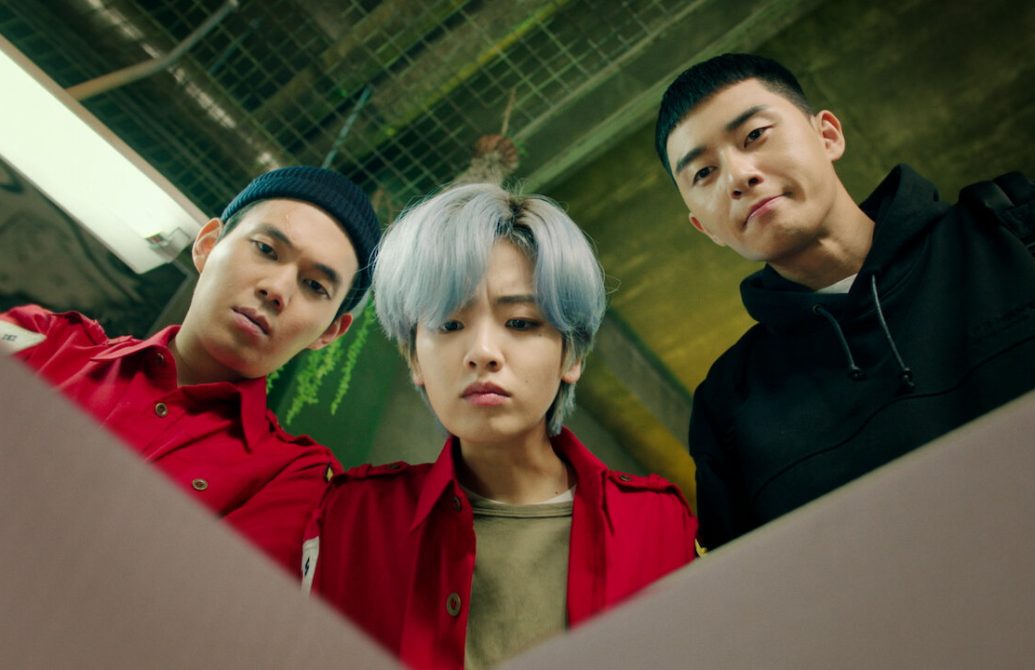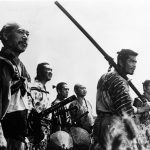It’s been a while since I last sat down to watch a long series. Thankfully, it wasn’t a waste of time. This is a show worth watching. If we set aside the strict line between fiction and reality for a moment, we can uncover some truly meaningful messages in Itaewon Class. Personally, I found myself drawn to six messages the series delivers to its audience.
1. Real School Is Where Life Begins
Going to school isn’t just about showing up and sitting through lessons. It’s where a miniature society starts shaping its newest members. Students come from different backgrounds, with varied personalities and dreams. And it’s here that the famous catalyst—the driving force behind all growth—emerges: conflict.
When the main character, Park Sae-ro-yi, steps in and strikes a particularly troublesome student, it changes his life (and those around him) forever. Out of youthful ignorance, he makes the right call to stop Jang Geun-won, a bully who doesn’t just tease or slap others like a childish prankster but revels in tormenting the weak for his own twisted pleasure.
So why does a new kid, someone who barely knows the ropes, find the guts to stand up against wrongdoing? I think we all have our own answers to that. What’s surprising is how getting expelled becomes the first, last, and most valuable lesson Park Sae-ro-yi takes from school.
The behavior of kids mirrors the mindset and character of their parents. That’s why, in school, it’s not enough to focus only on what kids learn or how they study—we also need to pay attention to how they treat their teachers and peers. This is the stage where everything truly begins. If we let it slip, no one can predict which way these kids will turn in the future. And that future, to me, feels close, quiet, but inevitable.
2. In Business, You Should Taste the Flavor of Liquor
The show features plenty of scenes centered around drinking and dining. Joy and sorrow, failure and triumph—all call for a drink. Liquor carries a taste that’s spicy enough, bitter enough, sweet enough, and, most importantly, just right to lift your spirits.
The buzz it brings lets people cut loose and embrace a kind of “wild” freedom. No fear, no worries, no drowning in overthinking. Everything feels simple. People crave simplicity because, when sober, life seems overwhelmingly complex.
The series skims over much of the grueling reality of running a business. Hardships flash by just enough to build drama. In truth, commerce could be as straightforward as it seems in the show if you’re patient enough to toil away, save up, build connections, and then meet the right people at the right time—people who, by some stroke of luck, want to help you without expecting anything in return. Together, you turn the tide and take down a nemesis who always leaves you battered but never finished.
On the flip side, you could down a thousand drinks and never taste the sweetness—just confusion and dead ends. Liquor isn’t for those who haven’t truly grown up. You can’t fake maturity by drinking. The drink itself isn’t the issue; its worth depends on the person holding the glass.
I love the detail of Park Sae-ro-yi learning to drink from his father. If we have to pick up something hard to put into words to survive in this world, it’s best to learn it from someone who genuinely cares about us.
3. Different Pieces Fit Together Perfectly
No character in the show is flawless. The story avoids the tired good-versus-evil split. Their differences and optimism make their entrepreneurial journey stand out. I picture the cast as a simmering hot pot, brimming with all the right ingredients.
Meeting new people opens our eyes to fresh perspectives. Supporting each other is the hallmark of big-picture thinking. While Chairman Jang seeks out clones of himself or obedient followers, Park Sae-ro-yi gathers everyone he trusts.
Park excels at this, weaving a diverse group into a cohesive whole. True leadership shines in how you handle people, not in stockpiling cash or scaling up. Of course, being a drama, our hero gets lucky with loyal, steadfast allies who don’t waver under pressure.
4. Stay True to Your Mission, and Everything Will Follow
That’s why we need to know ourselves before chasing any goal. In the series, Park’s clear purpose and unshakable faith bring him love, friendship, success, and happiness all at once. Meanwhile, Chairman Jang’s obsession with forcing a young man to kneel costs him everything.
Looking back at Park’s startup journey, every hurdle he faces would make eight out of ten people quit. His achievements stem from ups and downs, from sacrifices. When we see someone succeed, it means they’ve traded a lot and fought hard for their ideals.
Finding your mission is tough; sticking to it is tougher. But if you’ve got the courage to do it, life won’t feel wasted. What people regret most is youth—and youth only matters when you live it your way, contributing to the world on your terms.
I once heard a close friend say: “As a man, when you’ve got a clear purpose, everything falls into place like a magnet pulling it in.”
I think he’s spot on. Back when I’d watch Tarot readings, most people only cared about how to grab fame, money, or love—rarely how to deserve them. Park Sae-ro-yi is a fictional figure bursting with spirit, integrity, and morals. But I believe real people like him exist out there.
5. Kids Grow Up Mirroring Their Parents
Back to education, this theme shines through with real humanity. Take Park Sung-yeol raising Park Sae-ro-yi, Chairman Jang Dae-hee molding Jang Geun-soo and Jang Geun-won, Jo Jeong-min shaping Jo Yi-seo, or Oh Soo-ah forging her own path. Their efforts craft future versions of themselves. So, when raising kids, never forget they grow up watching their parents.
6. Dreams and Reality Are One
Without dreams, nothing becomes real. If you don’t dare to dream, you’ll never reach them. That’s why meeting someone with a dream is so exciting. It’s also why I adore kids—they love to dream. Adults, though, weigh reality first, and often that hulking reality swallows their dreams whole. Sometimes, when they stop dreaming, they try to stop others too.
Park is a bona fide dreamer: starting a business with two quirky, unskilled workers, opening a shop before finding customers, openly challenging a giant corporation decades ahead of him, managing by gut feel. Yet doing something beats doing nothing—and he lucks out with success.
Watching an inspiring series like this, the best takeaway for me is tying dreams to reality. How? Through determined action. There are practical nuggets too. For anyone into business or startups, you might pick up tips like:
- Don’t be stubborn or squander money.
- Steady growth beats rapid spikes.
- Real strength lies in building and helping, not tearing others down.
- Be a good person, and failure just means a chance to try again.
- Relationships built on gain alone fade when the value’s gone.
Conclusion
I’m not sure when I’ll next feel like binge-watching a series. But spending time on this one was worth it. Itaewon Class hooks you because we all see a bit of ourselves in it, mixed with admiration for the characters’ vibrant lives. Daydreaming now and then to fuel a livelier existence isn’t such a bad thing. Life’s short—do what you love.














